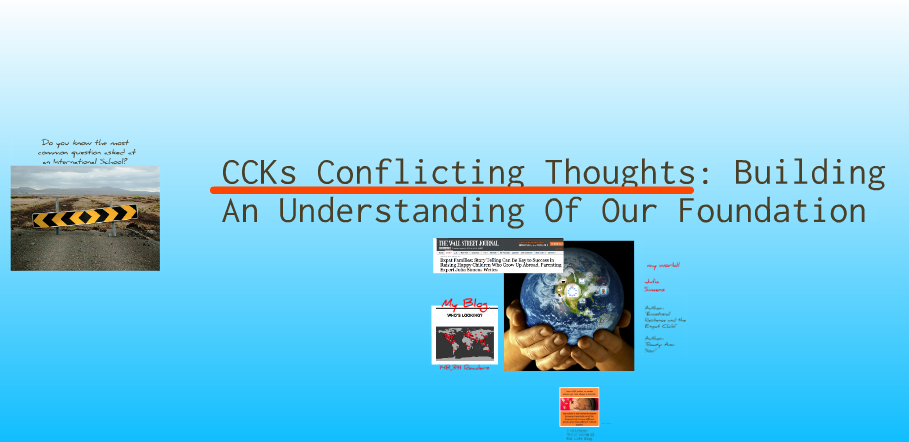
I am a firm believer that the more we understand about ourselves, the better we communicate to others and the more fulfilled we tend to be. Working with the global population has always given me many concrete examples of how they try to process their global upbringing.
Recently, I was working with 7 -10th graders at a school. We went over all the different parts of our culture to help us understand our own unique identity. I asked the students to think about 10 areas that pay a key role in “who we are”.
These are:
- Family (Meaning who is living currently under your roof, including any staff or host country people who share the same living environment)
- Extended family (those we see often or just yearly but are a part of our lives through social media when we are not physically together)
- Rules of behavior (Many families have multicultural rules and norms – so it is important to understand as a young kid “What rules of behavior do I internally have?” and to be able to put these rules down in written form.)
- Languages that we have mastered. (To be able to read, speak and understand at least 300 words in another language)
- Traditions – which ones do you see in your current home or which ones do you really like.
- Religion – which ones are in your home or in your neighborhood that you are aware of.
- Art – which type of art are you drawn to.
- Music – which type of music are you drawn to.
- Food – what are your favorite types or your favorite food
- Interest groups- what do you identify yourself as a passion or what you do in your free time.
Moving in a country allows regional cultures to become part of our mix.
Global Nomads have many different cultures in their lives.
We are often good at realizing the cultural differences between countries but as we work with these global souls, we also need to be mindful of the geography differences due to regional cultures.
This student felt his base language was Bahasa Indonesia but was speaking and writing above grade level expectations in English. He also could communicate in Makassarese which is used in South Sulawesi island, Toraja-Sa’dan a Malayo-Polynesian language spoken in Western Sulawesi, and Manado Malay which is spoken in Manado. Imagine mastering five languages prior to becoming a teenager. He also was confident that his language skills would continue to develop since he communicated often with these extended family members and they did not fall back into English because they were aware of the need to keep their base languages strong.
He also had an extended family that were Christian, Buddhist and Muslim. He had the ability to understand all of these core beliefs and see similarities and differences. He said, “As a family we celebrate a lot of religious events, we understand the need to honor every ones belief.”
Sometimes the students write powerful personal glimpse of what it means to be a global nomad.
Story # 1 My view is not the same.
I grew up in a small village in Indonesia but half way through my elementary school years my family moved to Balikpapan. My Dad does not carry an Indonesian passport but he gets a work visa to stay with my Mom, who is Indonesian. They decided to move me to an international school once we moved to Balikpapan.
My English quickly got a whole lot better. I still so most of the same things that I did before coming to Balikpapan.
When we worked on our culture or identity and you walked us through all the things that makes up a person’s culture, I go it. I could finally understand why I don’t always see eye to eye with my mom or my dad. My dad sees things that he knows or through his culture. My mom sees things or knows things through her culture. I am unique, I see things through my culture which is both cultures.
Story #2 Why can’t I have both?
Why can’t I have both – why can’t I pick what I want?
It seems like I live in two worlds all the time but find neither one of them perfect. When I am in Indonesia, I dream and want to be in Australia. When I am in Australia I dream of being back in Indonesia. I have mastered both languages, can tolerate both kinds of music from our countries and actually love both Australia and Indonesian food.
Why can’t I have both – why can’t I pick what I want? I have good friends at school in Indonesia but always feel like I am missing out on things going on in Australia. I have great friends and family in Australia. But I also have great friends and family in Indonesia. Why can’t I have both?
Why can’t I have both – why can’t I pick what I want? In my dream, Australia will be perfect. But it is not in real life. In my dream, Indonesia is perfect but it is not in real life. Why can’t I have both – why can’t I pick what I want?
Here is the classroom presentation:
It can be also viewed at: http://prezi.com/vohav6owhsyb/international-school-balikpapan-grades-78-and-910/#
Contributed by Julia Simens, an American writer who has lived on five continents and raised two TCKs. Her book "Emotional Resilience and the Expat Child: practical storytelling techniques that will strengthen the global family" is commonly found in many international schools and embassies where she gives talks to parents, teachers and families living a global lifestyle. Find her blog aat http://www.jsimens.com